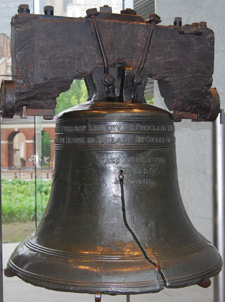What is the foundation and history of
REPRESENTATION in America?

Quoting the Declaration of Independence..."We hold these truths to be self-evident, that all men are created equal..."
Have you ever asked yourself who the "We" is in this famous statement? The end of the Declaration tells us...
![]()
Quoting again from the Declaration...
"We, therefore, the Representatives of the united States of America, in General Congress, Assembled, appealing to the Supreme Judge of the world for the rectitude of our intentions, do, in the Name, and by Authority of the good People of these Colonies, solemnly publish and declare, That these United Colonies are, and of Right ought to be Free and Independent States..."
The birth of our country began with a document authored by REPRESENTATIVES!

What's the most important part of the Constitution?


Article I, Section 1 - "All legislative Powers herein granted shall be vested in a Congress of the United States, which shall consist of a Senate and House of Representatives."
The Framers defined in the very first Article and Section that Congress is the only body that could make laws for the American people. Within this legislative body, which part is discussed first?

Article I, Section 2 - "The House of Representatives shall be composed of Members chosen every second Year by the People of the several States..."
The placement and structure of Article I makes a clear and profound point...the Constitution places its faith in the people's hands and NOT the federal government's hands.
Another key point about Article I is that it provides an equal balance between the people (the House of Representatives) and the states (the Senate). This was the essence of the Great Compromise that was reached at the end of the Constitutional Convention. The states are all treated equally in the Senate by virtue of each state receiving two senators, regardless of the size of the state. The House was the vehicle to give the people an equal voice across the country, and while the number of representatives from each state would therefore vary widely based on their population, the representation would remain proportional across all states.
For the first 130 years, the House of Representatives grew every decennial census (with one exception in 1840), in accordance with the Framers' intent as seen in Federalist No 57.
In 1910, the House grew to its present size of 435 members.
In 1920, due to a political stalemate, no reapportionment took place (a clear violation of the Constitution).
The Reapportionment Act of 1929 permanently froze the size of the House of Representatives at 435 members. While clearly out of step with the Framers' intent, the Constitution did not prohibit Congress from placing this ceiling on the House size.
Fast forward to the 1960s...Supreme Court case law in the 1960s clearly established the principle of "one person, one vote". Further cases in the 1970s and 80s clarified for everyone that there must be equal representation for equal numbers of people (see the Resources page for specific cases). As a result, the Courts require states to rigorously adhere to this standard (i.e., fractions of 1% of inequality is not tolerated), yet representation at the national level is severely unequal and unjust.
It's clear today that the Reapportionment Act of 1929 is unconstitutional from both a legal precedent and a Framers' intent perspective.
So why does the inequality continue to this day?
Who has taken up the cause to fight for equality and appropriate representation for all Americans?
- A few people have written about and analyzed the problem, but most Americans are unaware of the issue, let alone have thought about a potential solution.
- One congressman, Alcee Hastings (D-Florida), has attempted since 2001 to get the attention of his colleagues in Congress (see Mr. Hastings 2001 Letter and October 2009 Press Release), by introducing a bill to form a committee to discuss House expansion. Interestingly, his latest introduction of the bill, Congress 2014 Commission Act, occurred October 29,2009, and hasn't attracted any co-sponsors. Bottom Line...Congress is not interested in taking up this issue and reforming itself.
- This lawsuit is the first of its kind to bring the issue before the court to render a decision in light of the data and Supreme Court case precedent.

